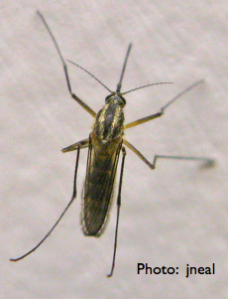
Mosquito
Scientific knowledge has advanced technology to a stage where mosquitos can be genetically engineered for sterility. The technology derives from decades of research on Wohlbachia, a strain of bacteria that can produce sterility in many insect species. Wohlbachia is known to inhibit mating between species such as the western corn rootworm and the Mexican corn rootworm. Crosses do not produce offspring when Wohlbachia is present. If the Wohlbachia is eliminated by antibiotics, crosses between western and Mexican corn rootworms produce viable offspring.
This technology has been applied to Aedes aegypti, the mosquito vector of Zika and other viruses. Male mosquitos are bred to carry a sterility factor so that matings with wild female mosquitos produce no offspring. Large releases of GMO male mosquitos (which do not bite) can cause reductions in the mosquito population and reduce the spread of disease.
Public views of this technology were unfavorable until the spread of Zika. Now the threat of Zika outweighs the threat of a GMO mosquito in the minds of a majority. Nathaniel Johnson has an article in Grist that discusses the change in attitudes in relation to perceived risk. If the benefits to the public are diffuse, such as protecting GMO crops, genetic modification meets greater negativity. However, if the GMO is addressing a problem such as Zika where the risk to the public is high, GMOs become more acceptable.

Pingback: Living With Genetically Modified Mosquitos – Entomo Planet